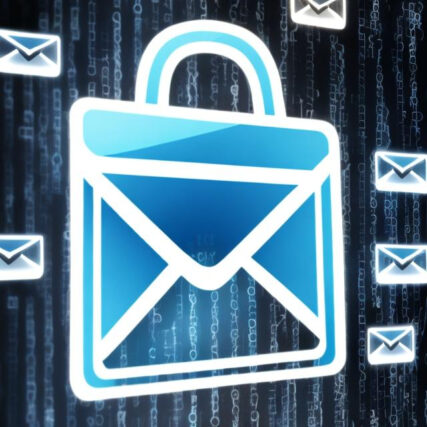
- December 15, 2023
- GuardiansOfIT
- 0
Businesses must prioritize the security of their email systems to protect sensitive data and maintain trust with clients and partners. Email data breaches pose significant threats, but with proactive measures and robust monitoring practices, small companies can fortify their defenses against cyber threats.
Section 1: Understanding the Risks
Highlight the vulnerabilities small businesses face regarding email security, emphasizing the potential consequences of data breaches. Discuss common attack vectors, such as phishing and malware, and how these can compromise sensitive information.
Section 2: Implementing Secure Email Practices
Provide actionable tips for small companies to enhance their email security:
- Employee Training: Emphasize educating employees on recognizing phishing attempts and the significance of strong, unique passwords.
- Two-Factor Authentication (2FA): Advocate for the implementation of 2FA to add an extra layer of protection to email accounts.
- Encryption: Encourage the use of email encryption tools to safeguard the content of messages during transmission.
- Regular Software Updates: Stress the significance of keeping email systems and software up-to-date to patch vulnerabilities.
Section 3: Monitoring Email Communications
Discuss the importance of real-time monitoring to identify and respond promptly to potential threats:
- Investing in Monitoring Tools: Explore email monitoring solutions that continuously track incoming and outgoing emails for suspicious activity.
- User Behavior Analytics: Emphasize the value of monitoring user behavior to detect anomalies that could indicate a security threat.
- Incident Response Plan: Please highlight the need for a clear incident response plan to quickly address and mitigate any email security incidents.
Section 4: Leveraging Cloud-Based Security Solutions
Discuss the benefits of cloud-based email security solutions:
- Email Filtering: Explore how advanced email filtering can automatically detect and block malicious content before it reaches inboxes.
- Data Loss Prevention (DLP): Explain how DLP tools can prevent sensitive data from being leaked through emails, ensuring compliance with data protection regulations.
Section 5: Regular Security Audits and Assessments
Encourage your businesses to conduct regular security audits:
- Penetration Testing: Discuss the value of periodic penetration testing to identify and address vulnerabilities in the email system.
- Compliance Checks: Ensure email security practices align with industry regulations and standards.
In conclusion, the security of email communications is paramount for small businesses in the digital age. By adopting proactive measures, implementing secure email practices, investing in monitoring solutions, and leveraging cloud-based security tools, small companies can significantly reduce the risk of email data breaches. Regular security audits and assessments ensure ongoing resilience against evolving cyber threats, allowing businesses to build a robust defense against potential security incidents.

